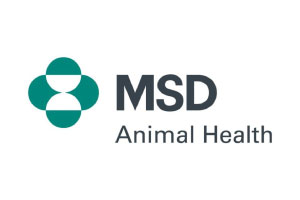Product Ref: HOPAN24 Category: M

Royal Mail Tracked 24 (Signed For)

Royal Mail Special Delivery Guaranteed by 1pm

| Category | POM-VPS |
| Temperature | Ambient |
| MA/VM/EU No: | 01708/4441 |
| Species |
|
| VMD Link | https://www.vmd.defra.gov.uk/ProductInformationDatabase/product/A003399 |
| NOAH Link | https://www.noahcompendium.co.uk/?id=-476031 |
| Dosage | No dietary control is required before or after treatment. For the treatment and control of migrating and tissue larval stages of large strongyles, encysted mucosal 3rd and 4th stage small strongyle larvae and encysted inhibited 3rd stage small strongyle larvae in the mucosa administer 5ml of the product per 65 kg bodyweight daily for 5 days (= 7.5 mg fenbendazole/kg bodyweight daily for 5 days). The product can be easily administered by mixing with grain or concentrate feed. The full daily dosage must be given as one administration. Pregnant mares and foals may also be safely treated with fenbendazole at therapeutic dosage levels. Assess bodyweight as accurately as possible before calculating the dosage. The use of a ‘weigh band’ is recommended. Recommended dosing programme Treatment of encysted inhibited and encysted mucosal dwelling larvae should be performed in the autumn (ideally late October/November) and again in the Spring (ideally in February). However, for horses that fail to maintain condition or bought-in horses with unknown worming history, the treatment can be given at any time of the year. Treatment with this product should form part of an integrated worming plan. Consult with your supplier for advice regarding wormers to use throughout the year. Panacur has been extensively used for the treatment of worm infestations in exotic animal species. For further information on suggested dose rates, please contact the veterinary adviser of the Company. Fenbendazole belongs to the benzimidazole (1‑BZ) class of anthelmintics. Studies have indicated that inhibited 3rd stage small strongyle larvae represent 50% of the total larval population in the horse. |
| Withdrawals | General warnings Care should be taken to avoid the following practices because they increase the risk of development of resistance and could ultimately result in ineffective therapy: •Too frequent and repeated use of anthelmintics from the same class, over an extended period of time. •Underdosing, which may be due to underestimation of body weight, misadministration of the product, or lack of calibration of the dosing device (if any).Suspected clinical cases of resistance to anthelmintics should be further investigated using appropriate tests (e.g. Faecal Egg Count Reduction Test). Where the results of the test(s) strongly suggest resistance to a particular anthelmintic, an anthelmintic belonging to another pharmacological class and having a different mode of action should be used. Resistance to fenbendazole has been reported in cyathostomes in horses. Therefore the use of this product should be based on local (regional, farm) epidemiological information about susceptibility of nematodes and recommendations on how to limit further selection for resistance to anthelmintics. Intensive use or misuse of anthelmintics can give rise to resistance. To reduce this risk, dosing programmes should be discussed with your veterinary surgeon. Operator warnings Direct contact with the skin should be kept to a minimum. Wear suitable protective clothing including impermeable rubber gloves. Wash hands after use. Withdrawal periods Not to be used in horses intended for human consumption. Treated horses may never be slaughtered for human consumption. The horse must have been declared as not intended for human consumption under national horse passport legislation. For animal treatment only. Keep out of the sight and reach of children. |